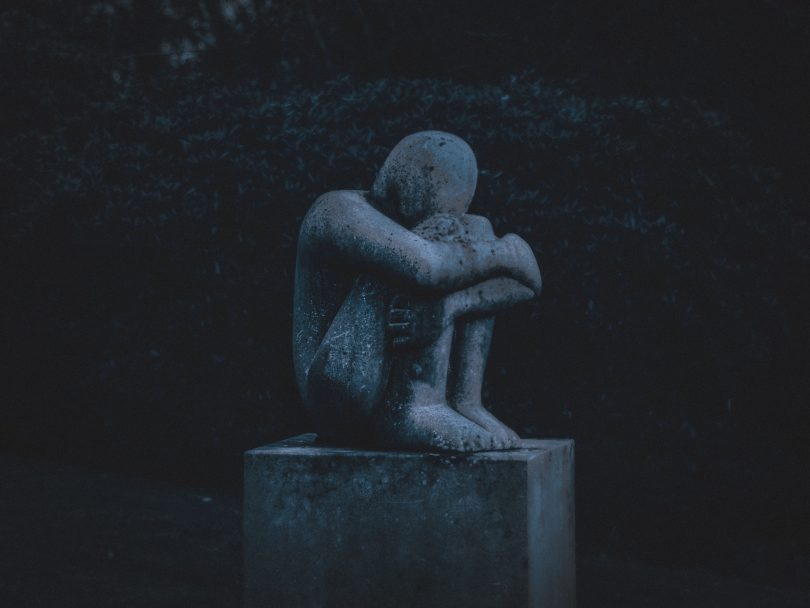Because I could not stop for Death –
He kindly stopped for me –
The Carriage held but just Ourselves –
And Immortality.
–
Emily Dickinson
Nick Cowall got a call he wasn’t expecting. It was his mother, Lubov – his dad had been taken to hospital. Disoriented by toxins in his kidneys which had affected his brain,Cowall’s dad had suffered a fall. A week later he was dead. Melbourne was still in the throes of lockdown due to the Coronavirus. Hospital visitations were limited and strictly monitored. WhenCowall’s father was admitted into hospital, neither he nor his mother were allowed to see him. “It’s not end of life,” doctors told them. By Wednesday they were told differently.
Cowall’s father – Nikolai Kovalenko – passed away on April 19. A Russian émigré, he died at 88. Only his son and wife were present. The global Coronavirus pandemic has severely disrupted life across all cultures. In response, we have had to re-evaluate just how social we are, and how much we’ve come to depend upon our sociability.
But while football matches, plays and concerts were placed on indefinite hold at the height of the pandemic, there is one thing that doesn’t stop when the world shuts down. Death – who works by its own schedule, waits for no inconvenience, and does not understand unavailability. Death, who waits for no one. The Coronavirus has been the cause for many deaths around the world (894, 983 at the time of writing), and on top of that many have died from other causes outside of the pandemic.
But for the first time, family and friends have been forced to process these deaths in a fundamentally different environment, separate from each other, and in many cases, unable to hold a proper funeral or memorial service for their loved ones. Video chat platforms have become a lifeline for grieving families during this time of separation. The Wednesday before Nikolai died, Nick called his three children via Facetime from his father’s hospital bed. “Would Dedushka like me to play the piano for him?” his daughter Sophie asked.
What followed was an hour and a half long concert, with one child playing the cello, one the piano, and one the violin. That same day, Lubov called her daughter Natasha, who was teaching in Hanoi, Vietnam. She was unable to see her father in person before he died. “We’ve encouraged families to Facetime, or Skype, and things like that. Even if a priest has come in to do an Anointing, we’ve only allowed two people in the room at a time,” said palliative care worker Ruth Whitefield.
Whitefield works at St Vincent’s Hospital. She said that due to restrictions, family members had to rely on video chats while their loved ones are in hospital. “As the patient has taken their last breath and died, sometimes that’s been on Facetime as well.” It hasn’t been easy for these families. “It’s that real conflict that you see them try to work through as to, ‘Well I know I should let a sibling in to be with mum, but I promised I would be here,’” Whitefield said. “Or you find that when somebody is dying, they do it their own way, and in their own time, so sometimes family have stepped out of the room, and that’s when the patient’s taken their last breath.”
Some might criticise modern technology as further dividing us, building a barrier of pixels and microchips between us – digitising human interaction that should otherwise be conducted in person. But in recent months, those barriers have transformed into bridges, the only thing connecting us to each other. At Nikolai’s Russian Orthodox funeral, only 10 people were allowed. A further 200 watched the service via livestream. It was not the “proper send-off” that Nick would have liked for his father, but there was no alternative. “Just about every funeral we’re conducting at the moment, particularly with social distancing, will have a limited number of family at the venue,” said Wendy Goy, of Tobin Brothers Funerals. However, webcasting funeral services is not new. “We were doing this long before COVID,” she told me. “We’ve been doing this for years because people are spread out all around the globe.”
Remote attendees are often still allowed to participate by sending recordings of themselves eulogising loved ones, which is then included in the service. “I looked after a funeral the other day where the granddaughter was interstate,” Wendy described. “She was studying music, and she sent through a clip of herself singing.” Nonetheless, many would not be used to such a restrictive method of grieving. As Nick said, “I did miss being able to grieve with my friends. I know they are grieving from afar, but it’s still different.” The reality many are facing now, is that their loved ones are dying away from them. It is hard to measure the degree of isolation.
Technology is the one connection keeping families together during periods of mourning, but it is a largely superficial experience which cannot replace the comfort of a hug. The sense of isolation and loneliness in death is complicated. Is it accurate to suggest that loneliness would be a concern during a fundamentally lonely experience? When we die, we cannot take our loved ones with us – even if they are with us to our last. Our final breath is our own – it is a practice which can only be partaken by the individual. And in death, can one be lonely when devoid of all realisations of said loneliness?
Loneliness is the disease of those left behind by the dying. It is suffered by those like Nick Cowall’s sister Natasha – separated from her family and without a suitable support network in a foreign country – or his children, who’s final interaction with their Dedushka was a classical concert performed through the small, rectangular screen of a smart phone.
“Funerals are for the living, rather than for the dead,” Nick reflected. And so too is the experience of grieving. The sense of togetherness – collectively mourning a loved one with shared, fond memories is something that has helped people with their loss in the past. Organising funerals during COVID, Wendy witnessed the anguish caused by separation. “You hear them saying to each other, ‘I’d love to be able to give you a hug. I’d love to be able to sit next to you. I’d love to be able to come around to your home,” she said
Even at St Vincent’s Hospital, Ruth Whitefield says that people fear the potential separation from their loved one. “We’ve had some families who have said, ‘Well, we don’t want our loved one to come into hospital, we want to have them at home so that we can be around them.” A few friends of Lubov’s broke social distancing rules to check up on her in the weeks following her husband’s death. Nick has been fortunate to have his children and wife for support and says they’ve grown closer together during this time.
Once lockdown restrictions have fully lifted, and life returns back to some semblance of normal, Cowall plans on holding a wake for his father. He wants his sister there too. He hopes for a service that provides “a chance to eulogise and celebrate the things that dad did and who he was”, with all of his father’s friends and family. He speaks of a professional choir of at least 16 men (Nick himself is an opera singer), singing an “amazing repertoire with stuff I knew he would have loved” (Nikolai was said to have a great love of classical music).
Not a spectacle, but a ceremony with “a bit more pomp”. To be alone is not an affliction of the dying. It might be a temporary fear that plagues their minds in the final days of their life, but they have the luxury of not remembering it once they have passed over. The living, however, are haunted by it – haunted by the separation that creates a physical divide. Normally we would rely on physical closeness to bridge the emotional divide that occurs during grief.
This pandemic has, if nothing else, shown us just how helpless we are without each other. Without a hug, a hand to hold, a kiss – without tears shed in tandem – it can be difficult to properly process our emotions. Loneliness does not exist for the dead, but it certainly does for the living.
(Featured Image: in the wake of the Coronavirus pandemic, families are finding themselves separated from each other. This can make the grieving process even harder, when faced with mourning a loved one alone. K. MITCH HODGE via Unsplash)




